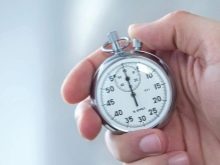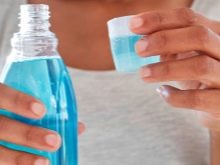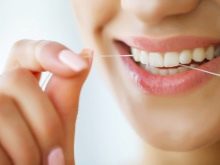When should you brush your teeth and how many times a day?
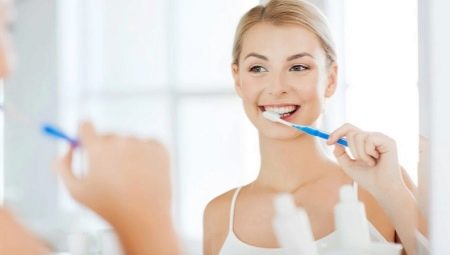
Everyone knows that teeth should be brushed twice a day - in the morning, immediately after waking up, and at night. And the question of whether to clean them before or after meals has become a topic of intense debate between nutritionists and dentists. In previous years, dentists insisted that this hygienic procedure should be performed after breakfast, but recently there have been serious doubts about this - many experts argue that cleansing the oral cavity should be carried out on an empty stomach. Both of them put forward weighty arguments in favor of their point of view.
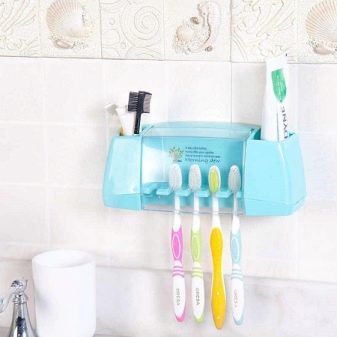
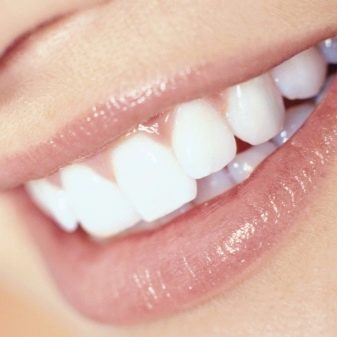
When is it better to clean: in the morning or in the evening?
From early childhood, everyone knows that teeth should be brushed in the morning and at night. And if the time of the evening hygienic procedure does not cause any questions, then disputes around the morning do not subside. Brushing your teeth before or after meals? Both theories have their pros and cons. Several facts speak in favor of hygiene procedures before breakfast. During a night's sleep, saliva is secreted in the oral cavity less than during the day. Therefore, overnight, the level of acidity in the mouth rises sharply, and pathogenic microorganisms actively accumulate and multiply in this environment. If a person eats breakfast with unclean teeth, all these bacteria will enter the esophagus, and from there into the stomach and intestines. Usually in the morning, the sensations in the mouth are not the most pleasant. It is not surprising that everyone has a desire to freshen their mouth before eating. Most toothpastes and powders contain fluoride salts - this element protects tooth enamel from the action of fruit and some other acids present in food.If you brush your teeth before breakfast, they will already be protected from the destructive effects of adverse external factors.
There are other arguments in favor of brushing your teeth after breakfast. After eating, food particles remain in the interdental spaces. If they are not removed immediately, they will rot. This provokes the development of tooth decay, and also causes bad breath. To protect your teeth from disease, it is advisable to brush them after eating. If you eat breakfast immediately after brushing your teeth, the food often seems unappetizing due to the peculiar aftertaste from the cleaning agent. The mechanical action of the abrasives of the paste and the brush injure the tooth enamel, therefore, under the influence of a cup of tea, juice or coffee, it can change its color. If the paste is whitening, then by brushing your teeth after eating, you can quickly restore the natural whiteness.
Adherents of brushing teeth after breakfast claim that the microflora of the oral cavity remains unchanged throughout the day. It is harmless, so there is no particular need to clean your teeth before eating.


So far, doctors have not come to a consensus about when to do hygiene procedures - before breakfast or after. Therefore, it makes sense to choose a rational kernel of both proposed options and use it in practice. The best solution would be to carry out the morning brushing of your teeth immediately after waking up, and after eating you can simply rinse your mouth with a special elixir or salt solution. Therefore, daily cleaning of teeth and mouth should be done twice a day. In the morning, teeth are brushed with pastes and powders with a lightening effect.
Special attention should be paid to cleaning the tongue and massaging the gums. After the last meal, it is better to use a paste with a high content of medicinal herbs - they disinfect, envelop, soothe, tighten ulcers and wounds on soft tissues and mucous membranes. You can floss during the day. Only thorough, comprehensive care will remove the maximum amount of food debris.
Advice: after morning and evening procedures, it is advisable to give up tea or coffee for at least 30 minutes, since they stain the enamel in a dark color, which will not be so easy to lighten back.
In any case, whichever option you choose, the main goal of hygiene procedures is to maintain oral health and prevent dental pathologies. The degree of assimilation of food directly depends on the condition of the teeth, therefore, the condition of the internal organs. You need to brush your teeth regularly, 2 times a day. And to do it before breakfast or after breakfast is a matter of personal preference for each person.
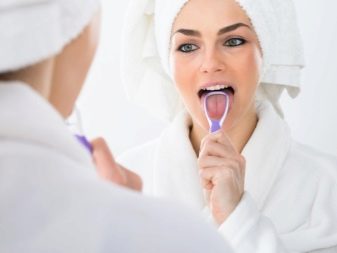
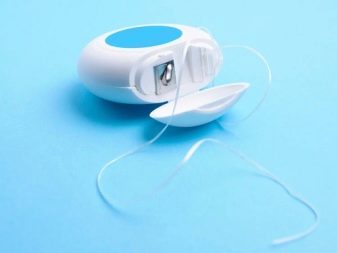
Frequency of brushing your teeth
The active ingredients in the toothpaste work for several hours. In order to maintain the necessary hygiene, it is advisable to brush your teeth at intervals of 12 hours. However, the processing schedule may vary depending on the physiological and age characteristics of the person.
For kids
From the first years of life, children must be taught to take care of their teeth and observe hygiene standards. This lays the foundation for a child's health. The rules for caring for the teeth of children are slightly different from those of adults. Until the crumbs have teeth, special care for the oral cavity is not required. But as soon as milk teeth grow, you need to start caring for them. First, they are gently wiped with a soft cloth or cotton wool. Once or twice a week, you should "cleanse" your teeth with a gentle silicone brush, you can buy it at any pharmacy. Babies usually do not know how to rinse their mouths, so special pastes with a safe composition are selected for them, the child can swallow them without the risk of unpleasant health consequences.
You can start taking care of your teeth with one procedure a day - it is important that the child gets used to the regularity of hygiene measures.As he gets used to it, you can gradually add another brushing. Adults should definitely keep this process under control and explain the correct cleaning technique to the baby.
It will not be superfluous to come up with some kind of incentive or encouragement so that dental treatment causes only the most positive emotions in the baby.
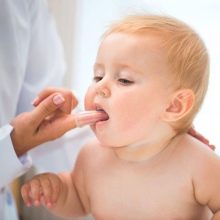

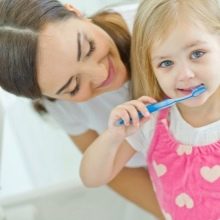
For adults
An adult brushes his teeth in the morning and evening. Morning hygiene measures remove all plaque formed overnight. Evening teeth cleaning at night gets rid of food particles stuck between the teeth, disinfects mucous membranes and ensures fresh breath. People who treat their teeth irregularly or "on the run" do not pay enough attention to cleaning the oral cavity, therefore, they often face the appearance of yellow plaque, bleeding and inflammation of the gums. Pathogenic microflora destroys enamel and causes erosion of mucous membranes. Therefore, keeping your teeth clean is the main task of every person who takes care of their physical condition.
But you should not be too zealous. Many people believe that the more often you brush your teeth, the better. However, this is not the case. If cleaning is carried out more than 2 times a day, it will negatively affect the enamel surface, since teeth are subject to friction during cleaning procedures. If such exposure is too frequent, then the enamel will gradually wear off, and the mucous membrane will be irritated all the time. In the future, this leads to diseases of the oral cavity. The only exception can be the moment when a person has eaten sweets or drank a sweet drink - in this case, you can clean the oral cavity with a brush and paste. In all other situations, hygienic care can be carried out using therapeutic rinsing with dental elixirs.
In addition, during the daytime you will need dental floss, it will clean out all food debris from the gaps between the teeth.
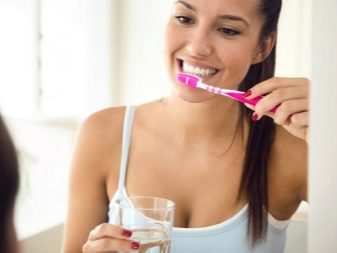
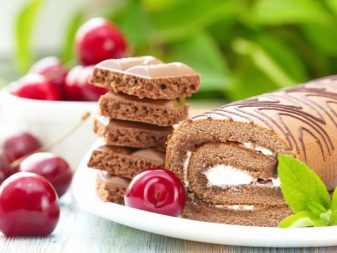
What else needs to be considered?
Dentists say that few people treat their teeth correctly. The reasons for this are different - lack of time, especially in the morning, ignorance of cleaning rules or banal laziness. When performing hygiene procedures, certain rules should be followed. The recommended duration of brushing your teeth is 2-4 minutes. The movement of the brush should resemble sweeping. At the final stage, they should become circular - this will polish the enamel and at the same time massage the gums. In this case, extreme caution is required, otherwise soft tissues can be damaged, especially if they are prone to bleeding. It is necessary to clean both the inner and outer surfaces of the teeth. Particular attention should be paid to the language. In most modern brushes, the back side provides a groove, it allows you to remove slimy plaque. In addition, you can always find shovels, scrapers and special brushes on sale.
Dentists strongly advise using dental floss to clean the gaps between your teeth after every meal. This will get rid of food microparticles. As a rule, floss is made of nylon, it can have a flat or round cross-section, it can be scented or treated with a special impregnation. Care must be taken when using the thread, otherwise the gums can be injured. The way to use it is simple:
- flos should be wound around the middle or index fingers;
- grab a tooth with a floss along the back surface;
- gently move it from top to bottom so as not to touch the gums.
After cleansing, the oral cavity must be treated with a special rinse from a pharmacy or a weakly concentrated saline solution. This will allow additional disinfection of the oral cavity. As a result of this treatment, the freshness of the breath and the cleanliness of the oral cavity remain much longer.
